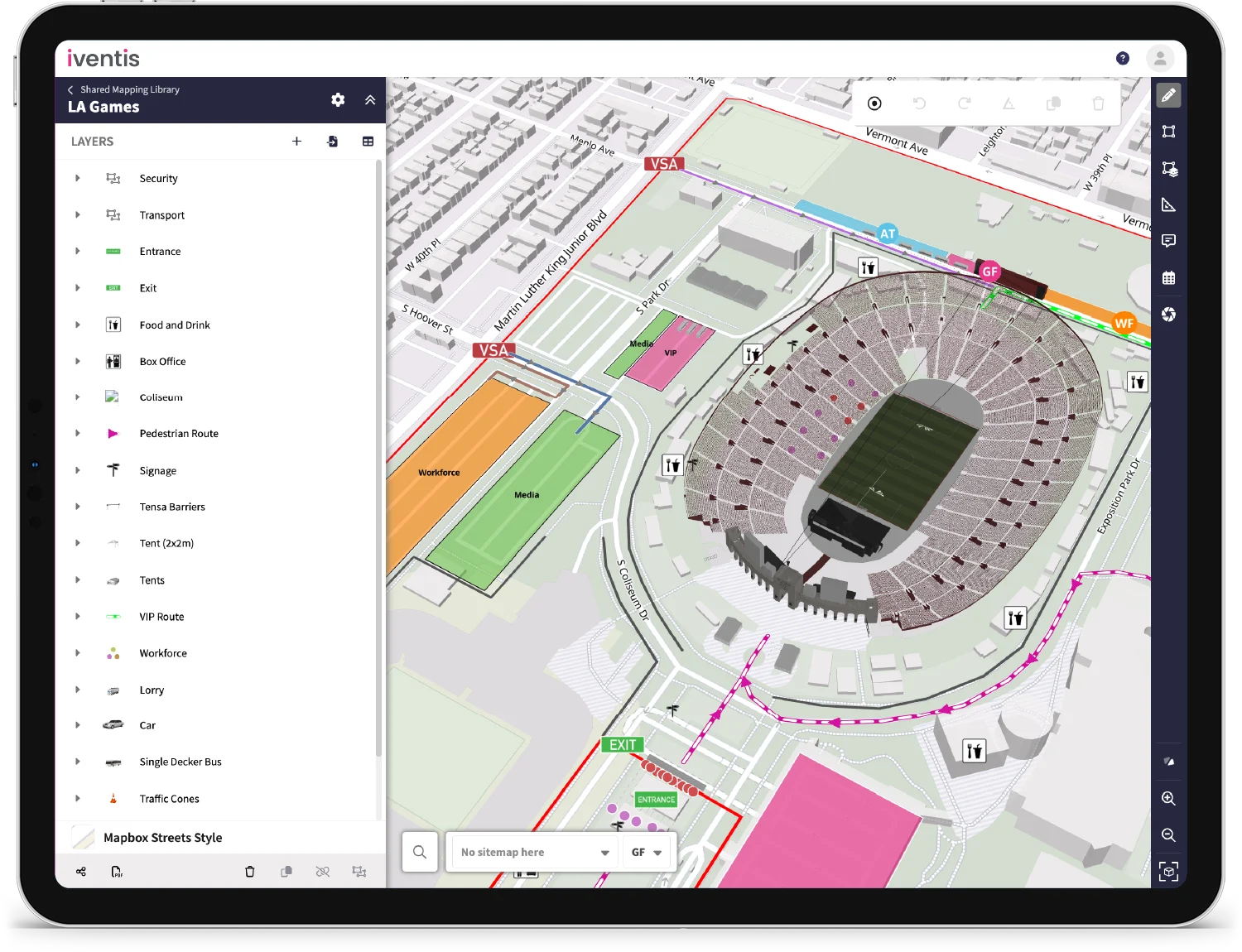The success of any event relies on the quality of its workforce. This is particularly true for large-scale events where the planning process involves many moving parts and functional areas. In the events industry, events are either one-time or recurring, rarely continuous. Therefore, employing people on a salaried, long-term basis is an inefficient way of managing the workforce. Instead, a more common event workforce strategy is to use a contingent workforce.
Managing a contingent workforce brings a unique set of advantages for event organisers. However, it also presents challenges that need to be addressed to ensure the success of an event. Read on to explore key factors to consider when planning a workforce of contingent workers. Getting it right can improve your event planning, operations and overall experience.
What is contingent workforce management?
A contingent worker is an individual hired on a temporary or flexible basis. They are often hired to meet specific project needs or to address fluctuations in workload. Therefore, the contingent workforce management definition involves hiring and managing non-permanent employees, like temporary workers, contract workers, and volunteers, who do not receive a salary. They differ from full-time employees in a number of key ways, and need to be managed as such.
The events industry relies heavily on hiring contingent workers because of the short-term requirements of events. Learn more about the structure of the event workforce here.
Why is contingent labour important for the events industry?
Often, contingent work is highly specialised in a particular functional area or element of the event. For example, security managers, transport managers, and production managers are usually freelance professionals who are contracted in on a contingent basis.
Given the prevalence of the ‘gig economy’ in the events industry, it is commonplace for event professionals to freelance. It doesn’t make sense for event organisers to offer permanent employment to these specialised professionals. Instead, hiring managers fill these positions via a talent pool to bridge skill gaps while maintaining cost savings.
However, contingent work also includes contracted agencies, specialised companies, consultants or other managed services, such as a private security firm or staging and AV crew. Here, the organiser is contracting the external company as an entity, while managing the individuals who make up the workforce. Here, a central manager might limit direct contact with the workers which, again, comes with both benefits and challenges.
The benefits of a contingent workforce
The benefits of organising events with a contingent workforce are numerous, from high quality work to operational and financial efficiencies.
Trust the experts
One of the main reasons for hiring contingent workers, especially in the case of freelance event professionals, is to tap into their expertise. They are selected for their knowledge in their field. As major events have such complex organisational requirements, the ability to trust your freelance workers is crucial.
Additionally, these experts are likely to have worked on multiple events and similar projects in the past, bringing a wealth of specific industry knowledge with them. And because they are a step removed from the organising committee, they are better placed to identify any issues that the organisers might have overlooked. Extra pairs of hands at a senior level are always extremely valuable for improving the overall event experience, both for organisers and attendees.
Flexibility first
Organising an event is not a one-size-fits-all task; the type of event, venue, and workforce needs all contribute to determining the personnel required. Temporary workforce solutions provide a level of flexibility that isn’t achievable with full-time employment.
Rather than committing to a definitive number of employees with certain roles, utilising a contingent workforce lets organisers bring in the exact personnel they need, with the right skillset for the specific event. This way, organisers avoid paying a salary for a worker who may not always have a role in every event – everyone is ideally suited for each unique event. Workforce planning tools can help organisers to understand their specific workforce needs, helping them to hire contingent workers with confidence.
Save time and money
Contracted workers often bring significant experience to the job at hand, and are therefore more likely to complete tasks quickly and efficiently. Furthermore, they might be paid on work completed rather than the time spent, which provides an incentive to work quickly. On the other hand, salaried employees receive the same pay regardless of time spent, which may be a less motivating factor for them.
We’ve discussed how freelancers can reduce costs by not requiring continuous payment when their services are not required. However, contract workforce management can also save on operational costs, such as human resources support, training, or employee benefits.
The challenges of a contingent workforce
The contingent workforce is so commonplace in the events industry that it clearly offers significant benefits. However, this doesn’t mean it is without challenges.
Maintaining control
Contingent workers don’t have the same requirements as employed staff, which can make it difficult to retain control. In the case of voluntary workers, it can be particularly difficult to rely on their availability, and no-shows are commonplace. To combat this, contingent workforce management systems such as Eventvolunteers can connect volunteers with events and support scheduling, ensuring that organisers have an overview of their volunteer workers and keep control.
Legal pitfalls
There are a number of legal differences between contingent hires and salaried employees that event organisers should not overlook. For example, organisers cannot control the means and manner by which the contracted worker completes their work, and these workers are not obligated to work outside of their contract. Misclassifying contingent workers can risk noncompliance with employment regulations, possibly resulting in legal action. It is critical that event organisers are fully aware of the legal implications of their hiring processes, especially when hiring temporary workers.
The right workforce for your event
Deciding how to structure your workforce is important for the overall success of your event, and there are numerous factors to consider. One way to help solidify your plan is by plotting your workforce requirements in a dot plan, helping you visualise the number and type of personnel needed across each functional area.
There is no right or wrong way to organise a workforce; it depends entirely on the type of event. However, being aware of the benefits and challenges of managing contingent workers can help to ensure that organisers have the knowledge to make informed decisions for improving their event.





